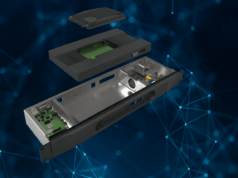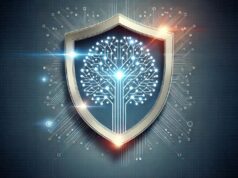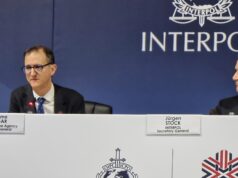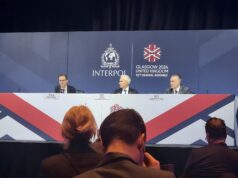NATO countries are working to determine when a cyber attack would trigger the collective defence provision in the alliance’s charter, a US general has said.
The alliance is “dealing with the issue around this and in cyber and working to define an understanding of what would be a trigger for Article 5,” General Curtis Scaparrotti, the commander of NATO forces in Europe, told a US Senate committee.
It “recognises the difficulty in indirect or asymmetric activity that Russia is practising, activities below the level of conflict,” Scaparrotti said.
NATO leaders have agreed that a cyber attack against a member state could trigger Article 5, and reaching a specific understanding on the issue would allow “greater agility, greater flexibility in determining how to respond,” he said.
- Collective defence means that an attack against one Ally is considered as an attack against all Allies.
- The principle of collective defence is enshrined in Article 5 of the Washington Treaty.
- NATO invoked Article 5 for the first time in its history after the 9/11 terrorist attacks against the United States.
- NATO has taken collective defence measures on several occasions, for instance in response to the situation in Syria and in the wake of the Russia-Ukraine crisis.
- NATO has standing forces on active duty that contribute to the Alliance’s collective defence efforts on a permanent basis.









This is good. About time North Korea and Russia realised cyber attacks are still attacks and will be considered as a hostile act that will lead to a counter attack.
Identifying who attacked you has got to be the biggest problem with this. I can’t imagine they sign off with Boris, St Petersburg.
Very tricky, nothing will ever be certain.
Whixh is why I feel this should be applied to article 4. Article 5 is far more serious. Then again with the potential damage of cyber attacks these days it depends how bad it is.
This response presumes we have the inability to use forensic evidence to determine the source of an attack. This is an incorrect assumption.
There is a whole new science of forensics where computer experts use their knowledge of the operation of the internet to track hack attacks. Granted, like all crimes, it’s not 100% effective, but it can be remarkably effective.
It allowed American defense intelligence to eventually track attacks (attempted or otherwise) on America’s election back to Russian operatives with very strong confidence. It has also allowed Ashton Kutcher’s non-profit Thorn to design technological means to identify human traffickers. They’ve saved thousands of lives with this technology.
Big table, nothing good will come from here.
[…] security apparatuses should swing into action to counter them. For NATO members, a cyber-attack might even trigger a collective political and military […]
[…] security apparatuses should swing into action to counter them. For NATO members, a cyber-attack might even trigger a collective political and military […]
[…] security apparatuses should swing into action to counter them. For NATO members, a cyber-attack might even trigger a collective political and military […]
[…] security apparatuses should swing into action to counter them. For NATO members, a cyber-attack might even trigger a collective political and military […]
[…] security apparatuses should swing into action to counter them. For NATO members, a cyber-attack might even trigger a collective political and military […]